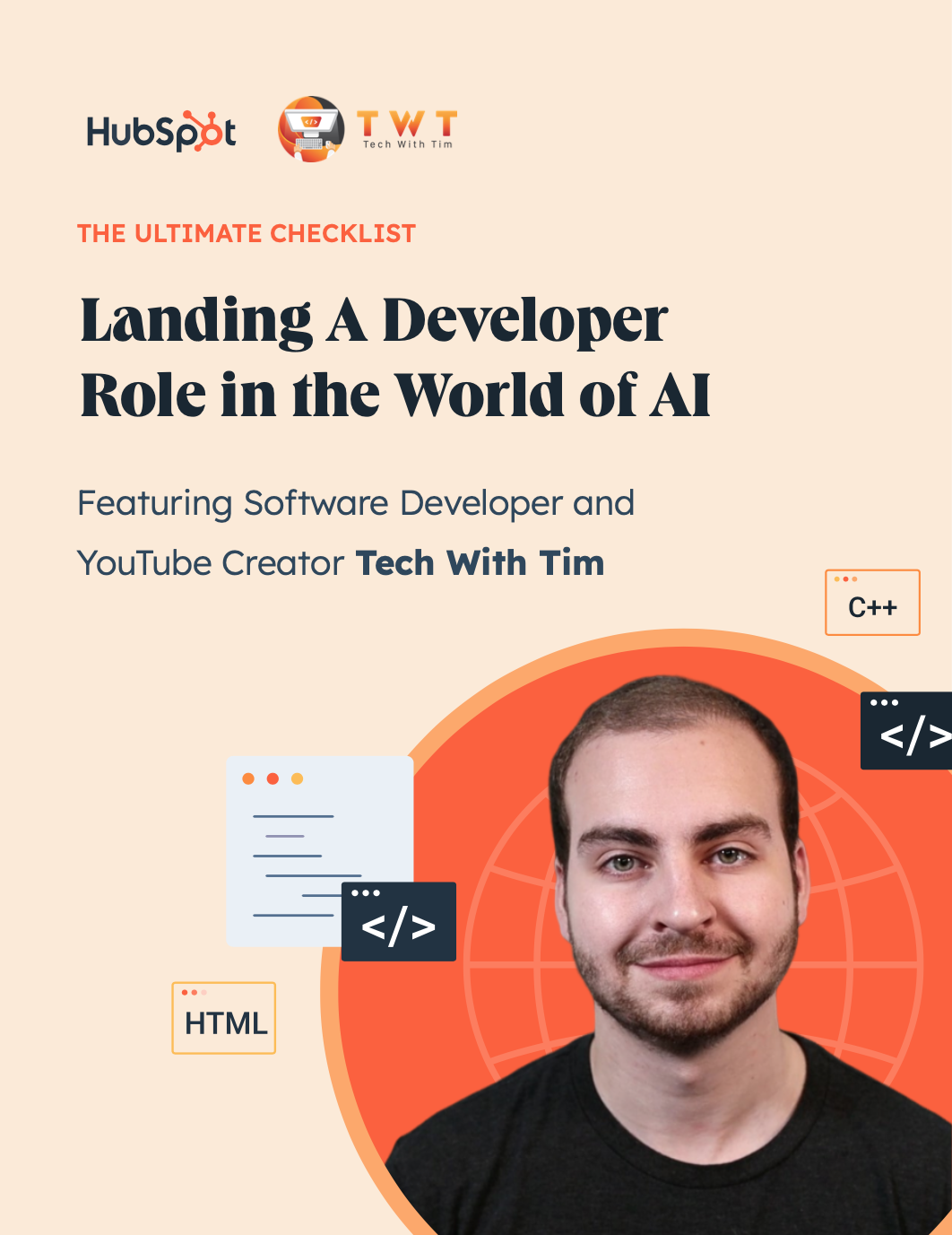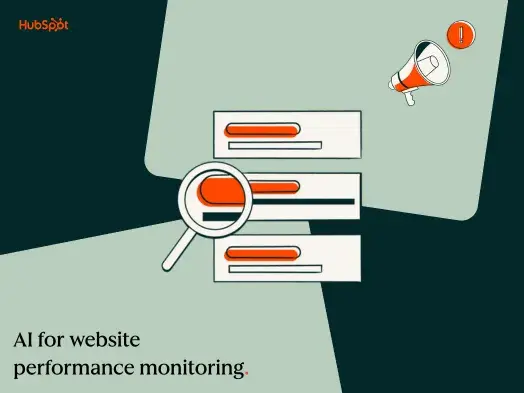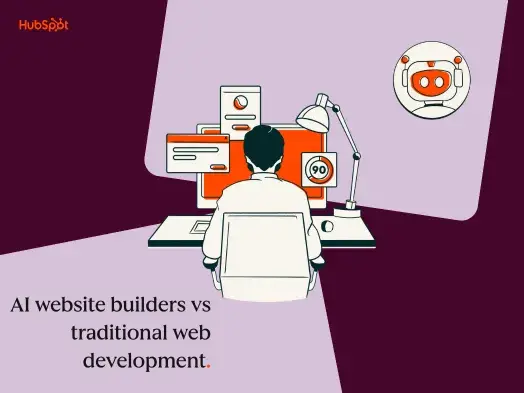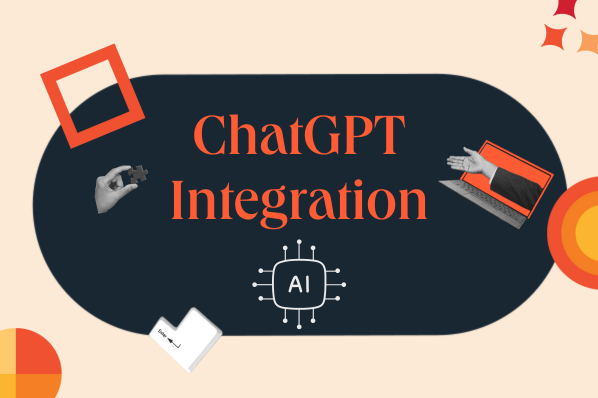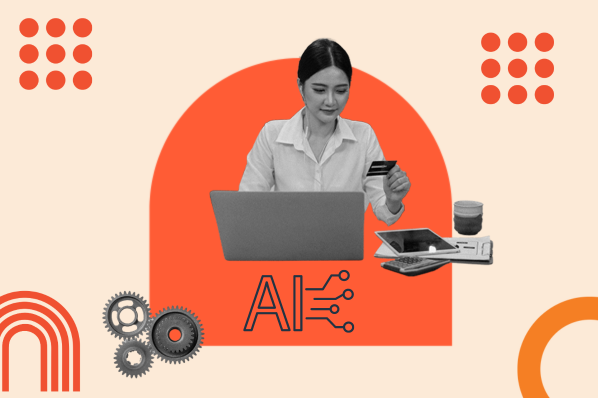Whether you're a front-end developer focused on creating the most intuitive and engaging user experiences, or a back-end developer working tirelessly to ensure smooth operations and data management, artificial intelligence has likely already made an impact on your work. Even if you're not directly using AI tools and techniques yet, the probability is high that you will soon be.
In this blog post, we're going to delve into the specifics of how AI is currently being used in both front and back-end web development. We'll explore real-world examples, discuss the data supporting the effectiveness of these AI applications, and even look to the future to see what might be coming next in this exciting field.
Let's get started!
AI in Front-End Development
Front-end development is where the user interacts with your website. It's all about creating a seamless, engaging user experience that's not just visually appealing but also intuitive and user-friendly. AI has rapidly become an invaluable tool in this space, enhancing user interfaces and driving personalized experiences. Let's delve into how.
AI Chatbots
One of the most visible uses of AI in front-end development is the rise of AI-powered chatbots. These sophisticated tools can interact with users in real-time, answering questions, providing information, and even helping with transactions. They use natural language processing and machine learning to understand user queries and improve their responses over time. The result? A 24/7 customer service that can dramatically enhance user experience.
Personalized Content
AI is also used to drive personalized content delivery. Machine learning algorithms can analyze a user's behavior, such as their browsing history, time spent on different pages, and interaction with different elements of the site. This data can then be used to personalize what content is shown to the user, tailoring their experience to their specific interests and needs.
Voice User Interfaces
With the increasing use of voice-activated devices like Google Home and Amazon Echo, voice user interfaces (VUIs) are becoming a crucial part of web development. AI is at the heart of these interfaces, understanding and responding to voice commands, and making websites more accessible and easier to use.
Front-End AI Examples
Numerous websites are leveraging these AI technologies to enhance their front end. For instance, e-commerce giant Amazon uses AI to provide personalized product recommendations, while ride-hailing service Uber uses an AI chatbot to assist with bookings. Meanwhile, media outlets like The Washington Post use AI to curate and present personalized news stories.
AI is radically transforming front-end development, making websites more interactive, personalized, and user-friendly than ever before.
AI in Back-End Development
While front-end development is all about what the user sees and interacts with, back-end development is the engine that powers the website from behind the scenes. It involves server management, database interactions, and application logic, among other tasks. AI is proving to be a powerful ally in this domain, streamlining processes and enhancing capabilities. Here's how.
Automated Coding
One of the most exciting uses of AI in back-end development is automated coding. AI tools like code generators and auto-completion tools can speed up the coding process and reduce errors. Moreover, machine learning algorithms can learn from previous code to suggest the best methods and practices, improving the overall quality and efficiency of the code.
Predictive Analytics for Server Management
AI can also play a crucial role in server management. By using predictive analytics, AI can foresee potential server issues and downtime, allowing developers to address these problems before they affect the user experience. This proactive approach to server management can significantly enhance a website's performance and reliability.
Security Enhancements
When it comes to security, AI can be a game-changer. AI algorithms can analyze patterns and detect anomalies in network traffic, identifying potential security threats that humans might overlook. Moreover, machine learning can be used to continuously improve these security systems, making them more effective over time.
Back-End AI Examples
Several companies are harnessing the power of AI for their back-end development. Google, for instance, uses AI to optimize its server usage and reduce energy consumption. Netflix, on the other hand, uses AI for its encoding process, allowing it to deliver high-quality streaming even on slower connections.
AI is revolutionizing back-end development, making it more efficient, reliable, and secure. This not only enhances the performance of websites but also frees up developers to focus on other crucial aspects of web development.
Data Supporting the Use of AI in Web Development
AI's integration into web development is not just a speculative vision for the future; it's a reality of the present, backed by compelling data. Numerous surveys and studies demonstrate the positive impacts of AI on enhancing user experiences and streamlining backend operations.
For instance, according to a report by Gartner, by 2027, chatbots will become the primary customer service channel for roughly a quarter of organizations.
On the efficiency front, data is equally compelling. A study by Juniper Research predicts that chatbots alone could result in annual savings of over $8 billion by 2022. This statistic underlines the potential of AI to not only enhance the user experience but also significantly improve the efficiency and cost-effectiveness of web development operations.
Moreover, websites employing AI-driven personalization have reported increased user engagement and conversion rates. In a Forbes report, it was highlighted that Netflix, using its AI-powered recommendation system, saved approximately $1 billion per year due to reduced churn.
This data clearly underscores the growing use of AI in web development, demonstrating its effectiveness in creating engaging, efficient, and cost-effective digital experiences. As we continue to move forward, the role of AI in web development is expected to become even more prominent and transformative.
Are Web Developers using AI?
The short answer is yes. While AI has already made significant strides in web development, the best is likely still to come. Current trends suggest that AI will continue to evolve and become even more integrated into all aspects of web development. This includes the emergence of AI-driven design tools, the increasing use of AI in data analysis and decision-making, and the growth of AI in cybersecurity. Staying updated with these advancements and adapting to them will be crucial for web developers in the years ahead.
From enhancing front-end user experiences to streamlining back-end processes, AI is transforming the way we build and interact with websites. As web developers, it's crucial that we understand and harness the power of AI, not just to improve our current work, but also to prepare for the future. It's clear that AI isn't just a buzzword – it's a tool that's here to stay. So, let's embrace it and see where it takes us.
Artificial Intelligence


